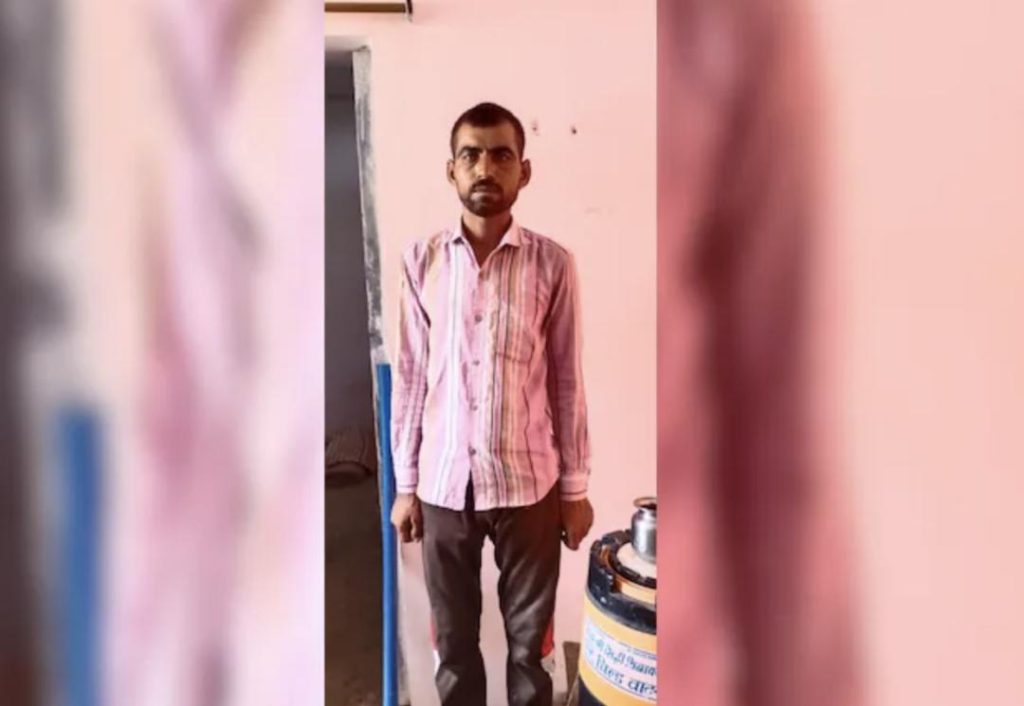
Serial Rapist Whose Death Penalty Was Cancelled Rapes & Kills 11-Year-Old in MP
India, a country that has been fighting against the rising cases of rape and sexual assault, has once again been shaken to its core with the brutal murder of an 11-year-old hearing- and speech-impaired girl. The heinous crime has left the nation in a state of shock and outrage, with many demanding justice for the victim and her family.
The accused, 40-year-old Ramesh, has a notorious past. In 2003, he was sentenced to 10 years in prison for raping a five-year-old girl. However, in a shocking twist, his death penalty for raping an eight-year-old girl in 2014 was cancelled, allowing him to walk free after serving only 10 years of his sentence.
Ramesh’s latest crime is a stark reminder of the failures of the Indian justice system. Despite being a repeat offender, Ramesh was given a second chance, only to commit another heinous crime.
According to reports, Ramesh allegedly raped and murdered the 11-year-old girl in Madhya Pradesh. The girl, who was hearing- and speech-impaired, was found dead in a field in the state’s Chhatarpur district. The police were called to the scene, and an investigation was launched.
Ramesh, who was on the run after the crime, was eventually caught after he returned to the Kumbh Mela, a major Hindu pilgrimage site in Prayagraj. The police were able to track him down with the help of CCTV footage and eyewitness accounts.
The case has sent shockwaves across the country, with many calling for stricter laws and harsher punishments for rapists. The Ministry of Home Affairs has also taken note of the case, with the Union Minister of State for Home Affairs, G. Kishan Reddy, expressing his concern over the rising cases of crime against children.
“This is a heinous crime and we will not tolerate such incidents in our country,” Reddy said. “We will ensure that the accused is given the harshest punishment possible and that the victim’s family is given justice.”
The case has also sparked a debate over the effectiveness of the Protection of Children from Sexual Offences (POCSO) Act, which was enacted in 2012 to protect children from sexual abuse. Critics have argued that the Act is toothless and that more needs to be done to prevent such crimes from occurring.
The POCSO Act provides for harsher punishments for those who commit sexual crimes against children, including imprisonment for up to 20 years. However, critics argue that the Act is often ineffective due to delays in justice and lack of resources.
In the case of Ramesh, his previous conviction and sentence were not enough to prevent him from committing another crime. His death penalty was cancelled, allowing him to walk free after serving only 10 years of his sentence.
The case has also highlighted the need for better rehabilitation programs for sex offenders. Many experts argue that sex offenders should be rehabilitated and reintegrated into society, rather than being given harsh punishments.
However, in the case of Ramesh, it appears that his rehabilitation was incomplete, allowing him to commit another crime. The case has sparked a debate over the effectiveness of rehabilitation programs and whether they are enough to prevent sex offenders from committing crimes again.
The incident has also raised questions over the safety and security of children in the country. The government has promised to increase security measures and provide better protection to children, but many argue that more needs to be done to prevent such crimes from occurring.
The case of Ramesh and the 11-year-old girl is a stark reminder of the failures of the Indian justice system and the need for stricter laws and harsher punishments for rapists. It is also a reminder of the importance of rehabilitation programs and the need for better protection and security measures to prevent such crimes from occurring.
As the nation mourns the loss of the young girl, it is imperative that we come together to demand justice for her and her family. We must also work towards creating a safer and more just society for all, where children can grow up free from fear of sexual abuse and exploitation.




